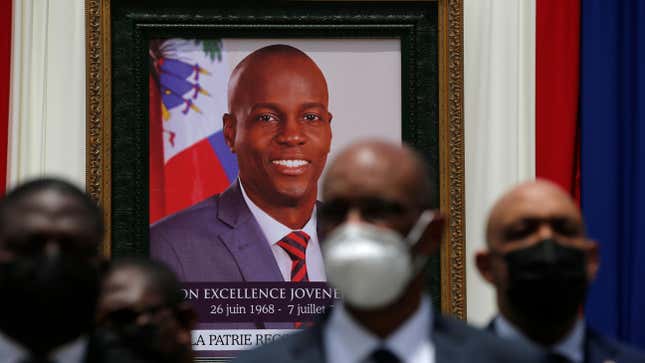
US Department of Homeland Security agents have arrested a suspect in the assassination of Haitian President Jovenel Moïse at his private residence last July. Former member of the Columbia military Mario Antonio Palacios was taken into custody by authorities in Miami, Florida on Tuesday.
Palacios, who also goes by “Floro,” was suspected of being part of a mercenary group that planned and executed the attack. The Guardian reports that Palacios previously admitted to being in the President’s bedroom during the assault in media interviews. He has been in hiding and denied any involvement in the assault that also wounded Moïse’s wife, Martine.
Back in October, Palacios was detained in Jamaica for entering the country illegally, according to the Guardian. Rather than sending him back to Haiti, Jamaica ordered him to be deported to Colombia. US agents intercepted the travel and arrested him.
From the Hill:
The 43-year-old is charged with “conspiracy to commit murder or kidnapping outside the United States and providing material support resulting in death, knowing or intending that such material support would be used to prepare for or carry out the conspiracy to kill or kidnap.”
If convicted, Palacios faces a maximum sentence of life in prison. The Justice Department’s National Security Division is working with the U.S. Attorney’s Office in the Southern District of Florida and the FBI’s Miami field office on the case.
Assistant U.S. Attorneys Andrea Goldbarg and Walter Norkin are working with the National Security Division to prosecute the case.
Palacios is accused of being one of the people in charge of the summer assassination plot, executed by a mercenary hit team of 26 Colombians and two Haitian Americans who shot and killed Moïse inside his home, the Miami Herald reported, citing Haitian police reports.
Jamaican police arrested Palacios in October on an immigration violation. He was in the process of being deported to Colombia when U.S. officials intercepted him during a stopover in Panama.
Palacios did not enter a plea while in a Miami federal court on Tuesday. Another court appearance is scheduled for January 31.
Following President Moïse’s assassination, Haiti faced a devastating earthquake and storm, political turmoil and an uptick in gang violence. Haitian immigrants seeking asylum have been turned away from US borders in droves. Moïse’s successor has yet to be chosen.
Haitian Prime Minister Ariel Henry, who was sworn in just two weeks after Moïse’s assassination, also survived his own assassination attempt Saturday during an event commemorating the 218th anniversary of the country’s independence. According to NBC News, Henry’s office accused local gang members of the attack and arrest warrants have been issued.

